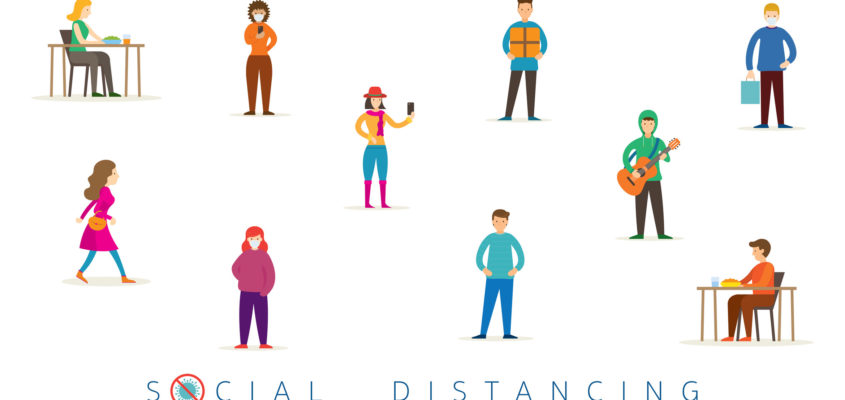
How social distancing affect one’s mental health and how to survive it?
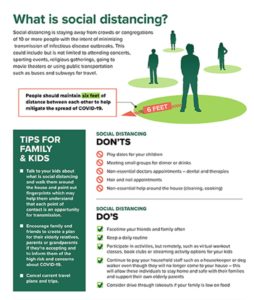
Social distancing affect one’s mental health
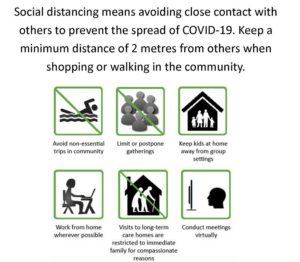
Social distancing affects one’s mental health and can lead to adverse physiological effects on people. In order to slow down the coronavirus spread, govt has adopted stringent measures to keep people apart. But mental health experts are warning that losing everyday social connections comes with psychological costs.
Fear of pandemic illness, forced isolation and a sudden spike in unemployment have hit all over the world. All these can take a significant mental health toll, especially on people who might have already experienced post-traumatic stress disorder.
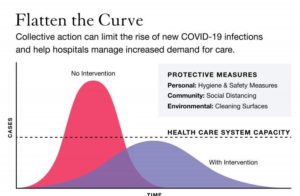
Coronavirus outbreak have greater rates of post-traumatic stress disorder symptoms
Some recent research and surveys show that people who are quarantined during a coronavirus outbreak have greater rates of post-traumatic stress disorder symptoms than those who are exposed but not quarantined. Having undergone through trauma before is a risk factor for elevations in post-traumatic stress disorder symptoms, and other symptoms like depression when someone is exposed to another life-threatening event.
During this social distancing period, others who are already dealing with mental issues and addiction could spiral while some might develop addictions, noting domestic violence and child abuse also could rise.
There are many families where there may be conflict. Or there may be abuse, and that is certainly something where being forced to stay at home can put them in a psychological pressure.
We have to find ways to stay socially connected to one another. And provide the supports so that all of us — all of us as essential citizens of this community — is here when we get to the other side of this plague.

How social distancing affect one’s mental health and how to survive it?
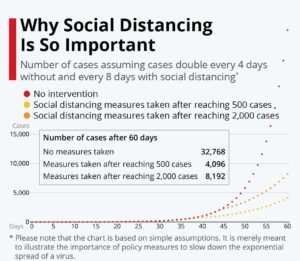
- Never let isolation numb your brain
It is important to note in your mind that isolation doesn’t just numb your brain with boredom. People start getting lethargic when they do not have positive inputs into their small worlds. We can expect depression to kick into this situation. As depression and anxiety are kissing cousins, you can expect that too. These symptoms are likely to get intense during coronavirus-related isolation.
- Have an open and transparent conversation
Open, transparent, consistent communication is one of the most important thing governments, and organisations can do. Ensure people understand why they are being quarantined first and foremost, how long it is expected to last. A big factor in the negative psychological impact is confusion about what is going on, not having clear guidelines, or receiving different messages from different organisations.
- Psychological strain and loneliness
The psychological strain of isolation manifests physiologically, too. It is one of the gravest things that humans can do to their overall well-being. In oldies, social isolation seems to worsen any pre-existing medical conditions. It can be from cardiovascular diseases to Alzheimer’s, but its ill effects aren’t limited to those over 60.
- Who all affect the isolation the most?
The people who are most at the bay of risk from the loneliness associated with COVID-19 are the people who are already at heightened risk of social isolation. Among older adults, people who earn lower-income and men experience isolation at a different level.
These individuals may not have friends or family to call, or maybe unable to do so. Some people have technology as a means of connecting people, but lower-income groups might not even have Facebook or Skype or minutes on their phone. People take that for granted. Using their mobile devices can be a strain on a few people’s incomes, particularly if COVID-19 has left them running out of a job. Minority people are going to be hit particularly hard as they often work in service industries. It increases the risk of social isolation and loneliness and coronavirus. It could pave the path to an economic and social recession.
No matter what your situation is, there are many things you can do to improve your experience while being socially isolated. We suggest exercise as a mood booster. Create structure and predictability as much as you can with those pieces of your life that you do have control over. Pursue neglected projects and get on with life. Be patient with yourself, both now and when this tough time eventually ends. People who go through an isolation period often struggle while reintegrating back into their ordinary routine. Social isolation may slowly become your routine, and losing it may still be a jolt.
Fortunately, you’re not in this alone, and you shouldn’t leave others that way, either. People who are not isolated can think about those people who were in your network that you haven’t heard from in a while. Give them a call or write a letter. Strengthen those weak connections. With any luck, you will emerge from social distancing a whole lot closer.




